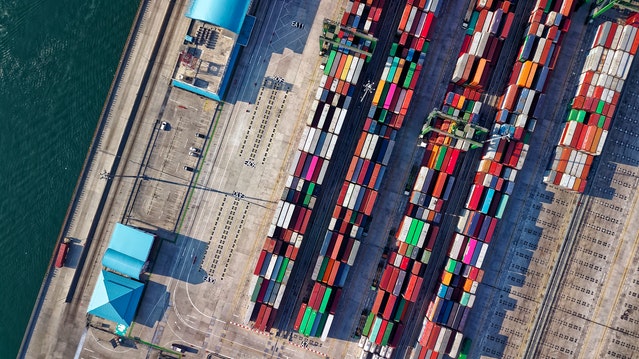In 2022, numbers show that only 16% of companies worldwide address their human rights and environmental impacts over the supply chain. Human rights and environmental due diligence (HREDD) requirements have been getting more attention lately, and rightly so. Thus, on February 23, 2022, the European Commission adopted a proposal.
HREDD is a process meant for companies to “efficiently identify, prevent, mitigate and account for the negative impacts of their activities or those of their subsidiaries, subcontractors, and suppliers,” as defined by the European Coalition for Corporate Justice (ECCJ). In other words, the proposal aims to make the companies accountant for their chain supply.
It is no secret that chain supplies have truly long and complex patterns. Let’s take the phone, tablet, or computer you are reading this blog on as an example. It is made of several parts that come from different places. Companies may find it complicated to demonstrate due diligence in such global trade models. Some even de-responsible themselves by arguing that they do not influence their supply chain. Nevertheless, socio-environmental regulations apply to many businesses. Conflict minerals, human trafficking, and other environmental regulations are some examples.

Human rights and environmental challenges affect supply chains throughout the product lifecycle. Electronics are no exception. Here is the typical supply chain of a device and its impacts on society and the environment:
Life-Cycle Stages | Environmental Impacts | Social Concerns | Regulations |
|---|---|---|---|
Mining for raw materials | Air pollution Harm to wildlife and habitat Can permanently scar natural landscapes | Linked to armed conflict Poor to no human rights Child labor Violence | 3TGs (gold, tin, tungsten, and tantalum conflict mineral regulations) |
Manufacturing of components | Pollutant emissions Toxic waste disposal and water contamination | Safety issues (e.g., poisoning hazards) Labor rights issues Child labor Violence | Child Labor Due Diligence Law; EU REACH; RoHS; Battery legislations; and Toxics in packaging regulations. |
Assembly of the parts | Greenhouse-gas emissions Impact on air, water, and land | Ethical issues Child labor Human rights issues Violence | Environmental, Social, and Governance (ESG) policies |
The EU HREDD rules include several specifications for businesses.

Since there is no possible way of controlling what happens within the supply chain, there must be a way to implement control from the outside. HREDD policy implements such control. In 2020, the European Commission organized a public consultation in which citizens were asked their opinion on the matter. As stated by ECCJ (2022): “respondents agreed that companies must be held liable for harmful practices in their home countries and abroad ad face strong penalties if they break the rules.” Doing such is the first step in minimizing human rights and environmental violations worldwide

For companies:
For consumers:
For developing countries:
Unquestionably, the HREDD initiative is not all perfect, but it is a step toward a sustainable supply chain with basic respect for human rights and our environment.
Filling to meet the HREDD requirements generates sanctions on both administrative and civil levels. Justice for victims is the main point of these procedures.
Guidelines on how businesses should act are voluntary but useful to demonstrate due diligence.

Here are the main ones:
Despite being voluntary, the guidelines above are helpful when addressing socio-environmental concerns.
There are legal injustices around the world regarding human rights every day. Passing laws help protect the victims, and implement due diligence. Indeed, it would prevent harm in workplaces within and outside Europe. Moreover, it would make the authorities and their companies responsible for improving their supply chains, making it a duty to protect human rights. It is a law project that allows the protection of people and the planet. Finally, Germany also published a similar Act in June 2021: the Supply Chain Due Diligence Act.
Do you have more questions about Human Rights and Environmental Due diligence? Contact Enviropass!